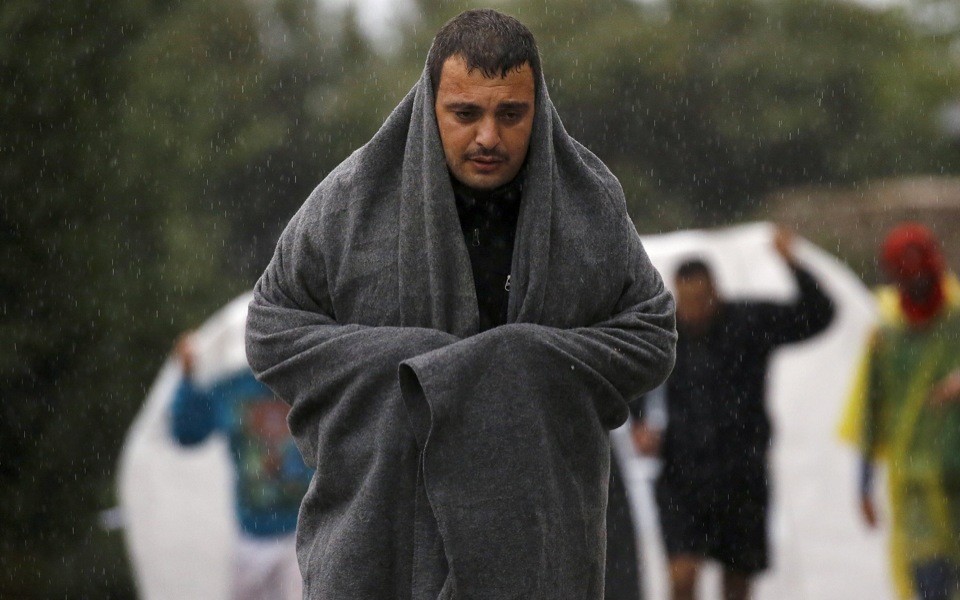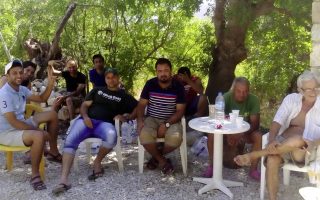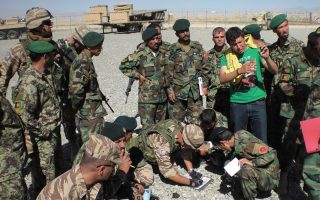When Greeks fled to Syria

Giorgos Taktikos was just 5 years old when he and his family began their long journey to the Sinai Desert by boarding a small boat in the middle of the night and leaving behind their native Chios.
Today, at the age of 78, Taktikos is following history being written the other way round. As a former refugee, he is pained to observe the boatloads of people fleeing the Middle East and reaching Greek shores, while his mind races back to his own long and difficult journey into the unknown.
A native of the Chiot village of Kourounia, Taktikos was one of over 30,000 Greeks who left several eastern Aegean islands during the German wartime occupation, some seeking refuge in Syria, others reaching South Africa, in an effort to escape hunger and war.
Boats crossing over, people drowning at sea, overflowing train wagons, refugee camps and deprivation – some things haven’t changed as far as the refugee journey goes. What has changed, however, is the destination: While people were striving to reach Syria back then, today it’s the other way round. “It’s hard to beat hunger and fear; refugee pain is tremendous,” said Taktikos.
In the fall of 1942, hunger spread across occupied Greece: While there were severe food shortages in urban centers, the situation was even worse on the islands, given the British Royal Navy’s blockade of the Aegean and the Mediterranean region in general. Getting away was the only way out and for residents of the eastern Aegean, including Samos, Icaria, Chios, Lesvos and Limnos, this was made slightly easier given the islands’ proximity to Turkish shores.
“I was 5. There was plenty of poverty and hunger on the island. In November 1942, a time when it seemed the situation was about to get even worse, my father decided it was time for us to flee in order to survive. Along with two young men, we stole a boat which the Germans had requisitioned, and one night my my father, mother and younger sister, together with another two families, crossed over to Cesme. We were collected by Father Xenakis, an Orthodox priest who met refugees as they arrived and took them to an area where humanitarian organizations could look after them. The first thing he did when we arrived was to make sure the wooden boat was broken into little pieces, so as not to be detected by the Turkish coast guard, who would have forced us to get back on it and return to Greece.”
Following a three-month stay in Cesme and nearby Izmir, the family was transferred to now war-ravaged Aleppo, Syria, under the protection of the Middle East Command – a routine procedure for refugees arriving from Greece at the time. After arriving in Syria, refugees were directed toward Palestine, Lebanon, the Sinai Peninsula as well as central and south African countries.
“We stayed in Aleppo for nine months, in refugee camps. That’s where I went to school for the first time,” said Taktikos. “We ate well. The British took good care of us. After that they took us to the Sinai Desert, via Suez. There were four camps hosting Greek refugees from eastern Aegean islands there. The living conditions were good and we stayed there for a year and a half before returning to Greece at the end of the war.”
Despina Sitara, 84, originally from Kallimasia, Chios, took a similar route. After arriving in Aleppo, she and her family were taken to Lebanon and then Egypt. As the troupes of General Erwin Rommel were nearing Cairo in July 1942, the family was among 1,200 people who boarded a boat and reached the Belgian Congo via Aden. They returned to Greece at the end of the war.
Aleppo, the Gaza Strip, Sinai and African countries were major destinations for Greek refugees back then, while a large number of refugees settled in Cyprus. Greeks, however, were not the only ones heading east, as Poles, Serbs and European Jews also crossed the “Greek axis” to safety.
Sitara and Taktikos are now assisting those traveling in the other direction.
“We are trying to help them as much as we can,” they said. “We know exactly what they’re going through.”





